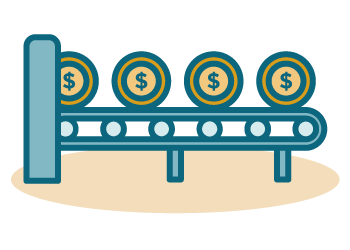Restitution
What is restitution?
Restitution is a court-ordered payment from a person convicted of a crime to a victim of that crime. Restitution is a payment for losses suffered because of the crime. It may include repaying money that was stolen, paying to repair or replace stolen or damaged property, or paying for lost wages or medical related expenses resulting from the crime.

A crime victims' right to restitution is included in the Victims’ Bill of Rights, which says that victims of crime have the right “to receive prompt restitution from the person or persons convicted of the criminal conduct that caused the victim’s loss or injury”.
It is important to know that requesting or receiving restitution requires that a person be convicted of the crime.
Once someone is convicted of the crime, a judge will decide what amount of restitution the convicted person owes the victim. The judge will then order the convicted person to pay that amount to the victim by a certain time or on a schedule.

What can restitution pay for?
When a judge orders restitution, the amount will depend on the type of crime and the impact the crime had on the victim. Examples of what restitution may pay for include:
Medical or dental bills
Counseling or therapy for the victims
Replacement or repair of stolen or damaged property
Lost wages from time off from work for the victim

The court can also order restitution for funeral costs, travel or moving expenses, if the victim had to move for safety reasons.
How do I request restitution?
You can request restitution by telling the prosecutor assigned to the case that you would like to request restitution to cover the costs related to injuries, losses, or other damages resulting from the crime.
It will be helpful to keep detailed records of each cost, including when it occurred. Documentation such as bills, receipts, and estimates for repair or replacement of items is always helpful.


Some prosecutor’s offices have staff that work as victim advocates. A victim advocate may be able to help communicate with the prosecutor or prepare lists of expenses for restitution.
When will I get the restitution the judge ordered?
When a crime victim will be paid restitution depends on what resources the convicted person has.
After someone is convicted of a crime, their ability to earn money is usually quite limited. This means that they may only be able to pay a small amount. In addition, if the crime involved multiple victims, the monthly restitution payment will be divided among all the victims.

Learn more about how restitution works with a brochure provided by the Arizona Attorney General’s Office:


